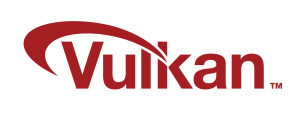NVIDIA recently published beta drivers that introduce the recently released VK_KHR_shader_bfloat16 extension in Vulkan 1.4.311 build. This extension allows for Brain Float BF16 operations within shaders in conjunction with the SPV_KHR_bfloat16 extension from SPIR-V. BFloat16 extensions should prove particularly useful for modern GPUs and software supporting Vulkan-accelerated machine learning / AI.
Machinelearning tagged news
Machinelearning tagged news
Khronos Opens Machine Learning Forum for Anyone to Join
Join us to help drive the evolution of Machine Learning acceleration standards. ML developers lament the growing fragmentation in the ML ecosystem. Khronos knows that open and royalty-free standards can play an essential role in reducing fragmentation, reducing costs, and providing the industry participants the opportunity to grow. Based on feedback from previous summit and discussions, Khronos is creating a coalition of interested parties to meet the needs of the ML community for hardware acceleration.
NXP eIQ framework brings machine-learning with OpenVX and OpenCL
NXP delivers a wide range of processing solutions on which machine-learning (ML) applications can run. Developers will need the associated software and tools to make them work and this is where eIQ framework and development tools come into play. The eIQ framework is designed to work with hardware abstraction layers like OpenCL, OpenVX, and the Arm Compute Library, as well as inference engines like the Arm NN (neural net), Android NN, GLOW, and OpenCV.
Khronos Standards for Machine Learning
Khronos member Peter McGuinness has written an overview about NNEF over on the GFXSpeak blog. The new standard was released in provisional form in December of 2017 and, after a period of consultation with industry, is now ratified in its final form and available for immediate use. As well as the standard itself, Khronos is simultaneously releasing a suite of open source tools to allow developers to immediately begin using the format with the three most popular training frameworks: Tensorflow and Caffe/Caffe2. All of these tools are available on GitHub in the Khronos repo. Learn more about NNEF.
Machine Learning Fragmentation Is Slowing Us Down: NNEF The Khronos Solution
The Khronos Group NNEF Working Group Chair Peter McGuinness discusses fragmentation in the Machine Learning field. Machine learning capabilities are being added to everything from social media platforms, IoT devices and cameras to robots and cars. The pace of innovation is leading to fragmentation, and one potential consequence of that fragmentation is a risk of stalling. A universal transfer standard for neural networks will cut down time wasted on transfer and translation and provide a comprehensive, extensible and well-supported solution that all parts of the ecosystem can depend on. The Neural Network Exchange Format is one of two standards currently being developed to satisfy this need. Learn more about NNEF and how it aims to solve this issue.
Khronos Group and Au-Zone Technologies to Develop Open Source TensorFlow and Caffe2 Converters for NNEF
The Khronos™ Group is working with Au-Zone Technologies to enable NNEF™ (Neural Network Exchange Format) files to be easily used with leading machine learning training frameworks. NNEF enables the optimized ingestion of trained neural networks into hardware inference engines on a diverse range of devices and platforms. Au-Zone is working with the Khronos NNEF Working Group to implement two purpose-built bidirectional converters, between TensorFlow and NNEF and also Caffe2 and NNEF. Both converters are expected to be released as open source projects to the development community in Q3 2018 under the Apache 2.0 license.
Codeplay: Alternative machine learning algorithms using SYCL and OpenCL
Codeplay has a very good write-up today on machine alternatives that don't use Neural Networks. The included code, SYCL-ML was developed as a proof of concept to show what a machine learning application using heterogeneous computing can look like and has been published as an open source project. The project was developed using SYCL and ComputeCpp, which is an implementation of SYCL developed by Codeplay.
Khronos presentations available from ESC Silicon Valley and the Embedded Vision Alliance Member Meeting
Neil Trevett, Khronos Group President and Radhakrishna Giduthuri, Software Architecture and Compute Performance Acceleration at AMD, spoke at two Khronos related events this past week. Neils presented was an update on the Khronos Standards for Vision and Machine Learning which covered Khronos Standards OpenVX, NNEF, OpenCL, SYCL and Vulkan. Radhakrishna presented Standards for Neural Networks Acceleration and Deployment covered Khronos Standards OpenVX and NNEF. The slides from both presentations are now online.
WebGL helps machine learning comes to your browser
There’s now a JavaScript library for executing neural networks inside a webpage, using the hardware-accelerated graphics API available in modern web browsers. Developed by a team of MIT graduate students, TensorFire can run TensorFlow-style machine learning models on any GPU. TensorFire works using the WebGL standard, a cross-platform system for rendering GPU-accelerated graphics in browsers. WebGL supports GLSL, a C-like language used to write shaders, which are short programs used to transform data directly on the GPU.

